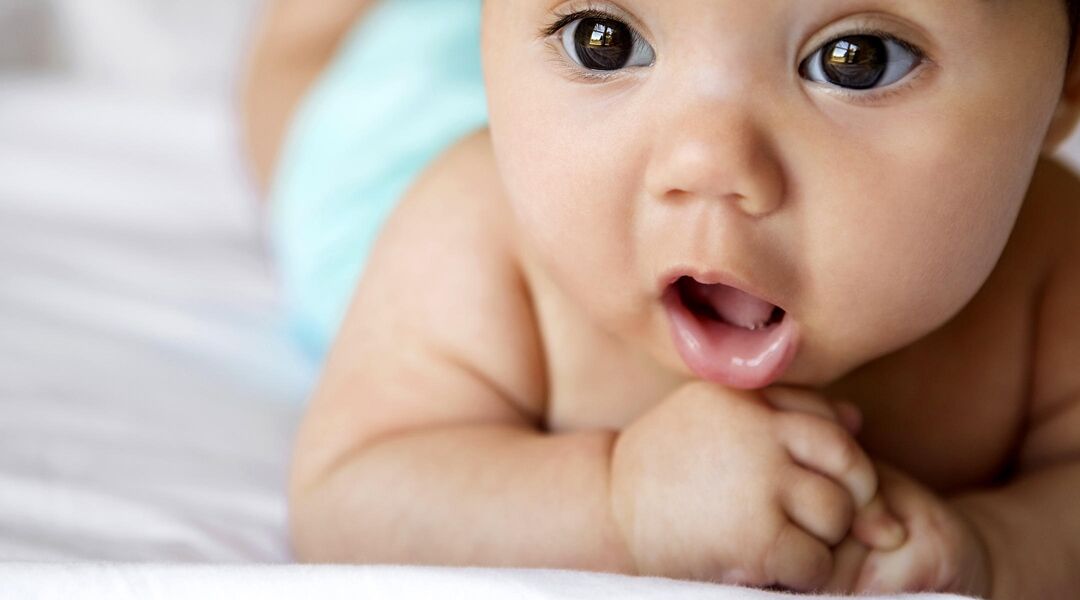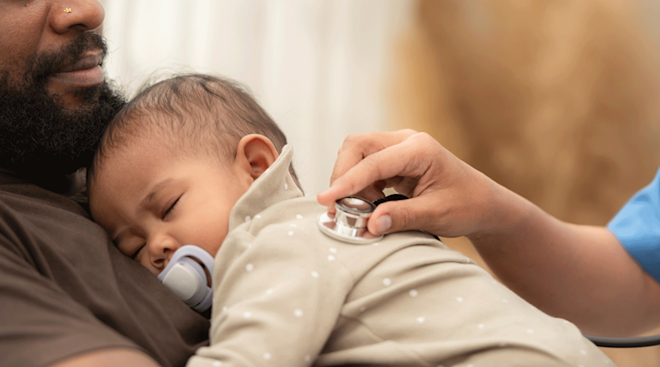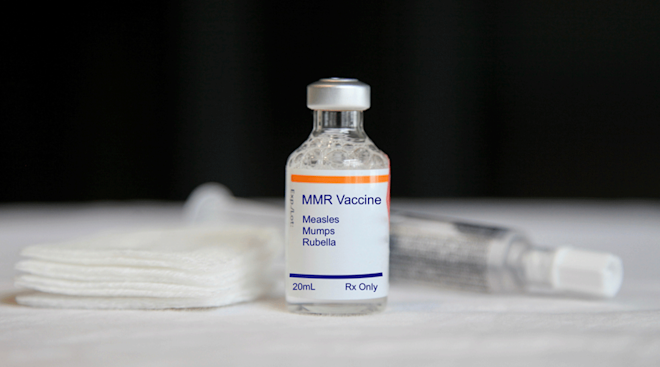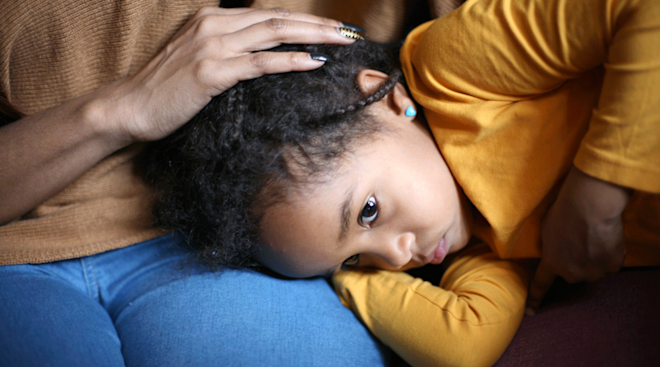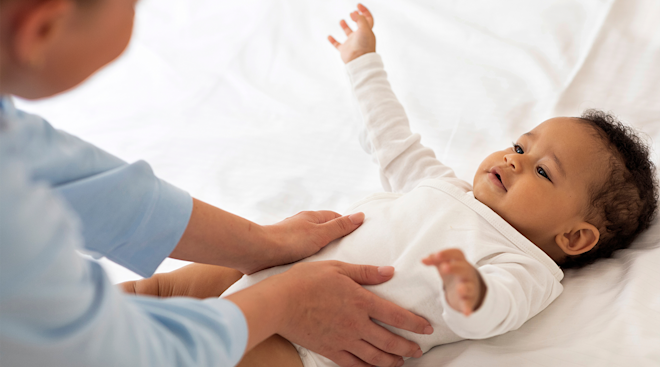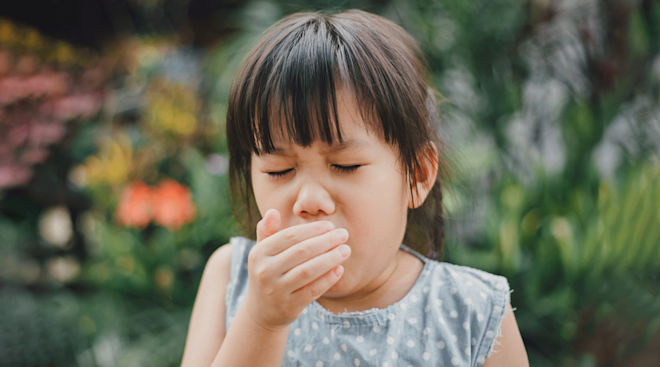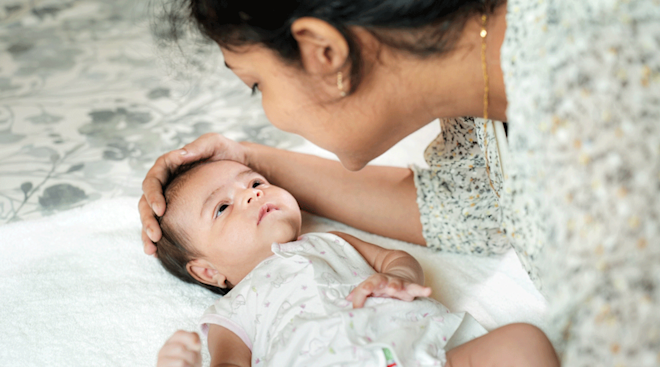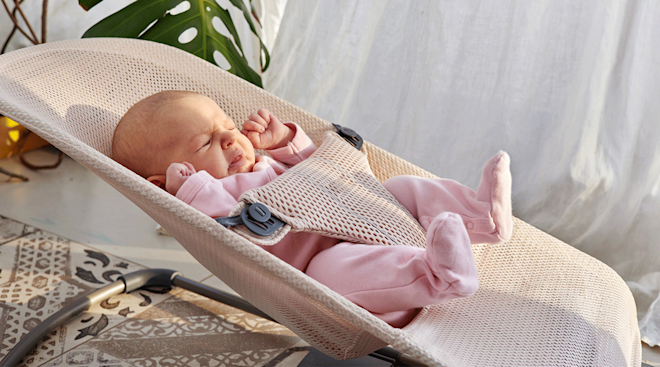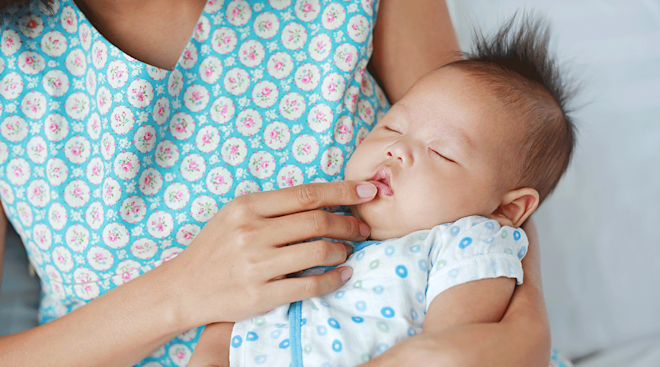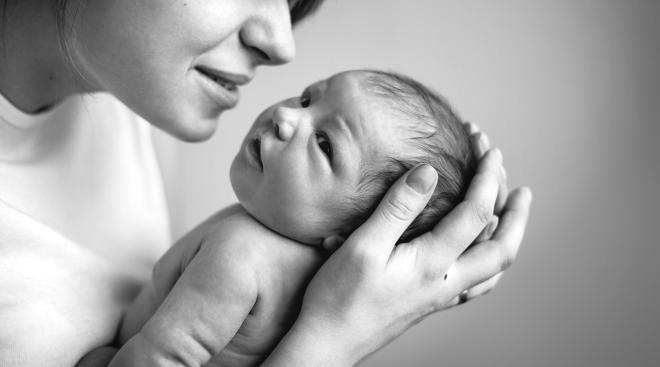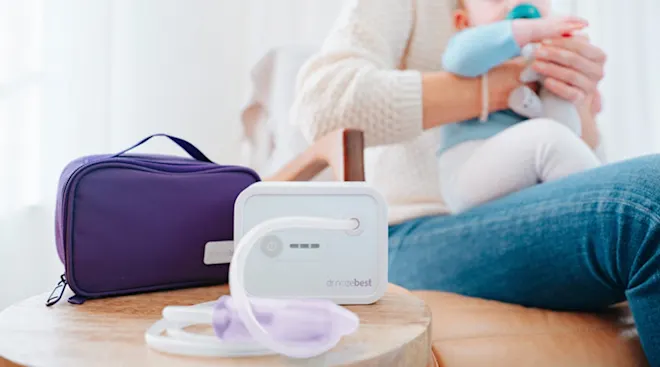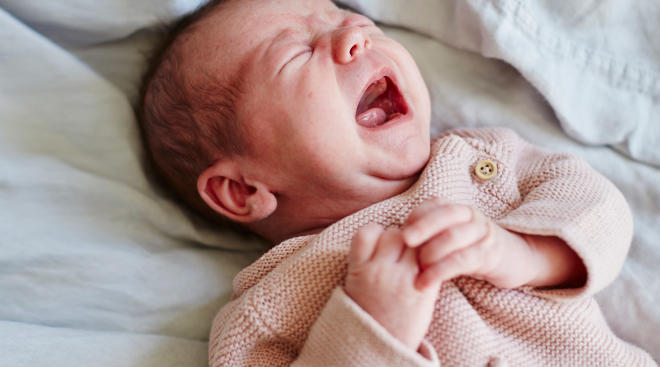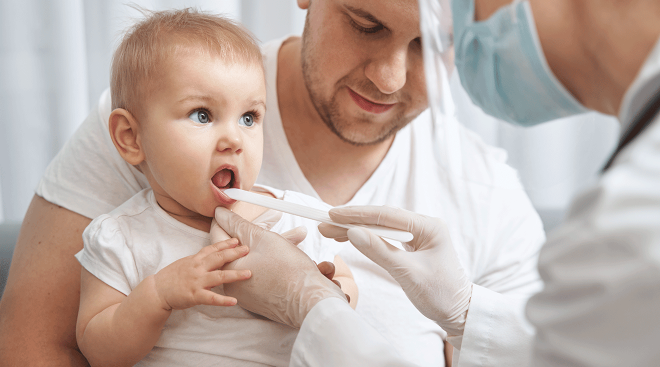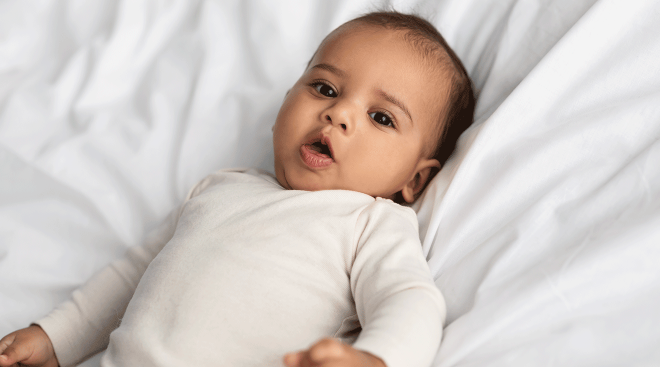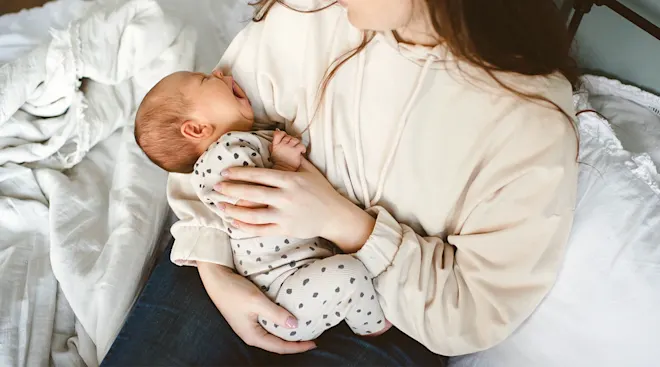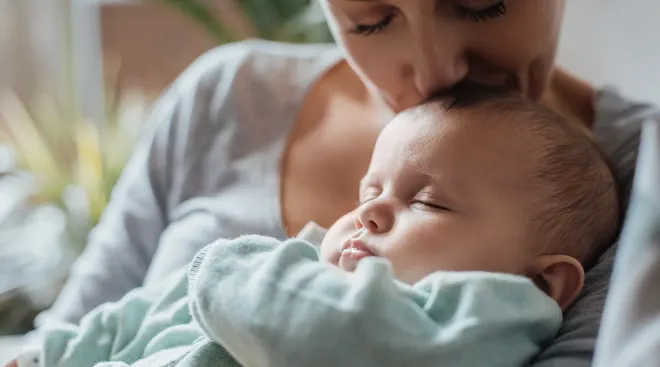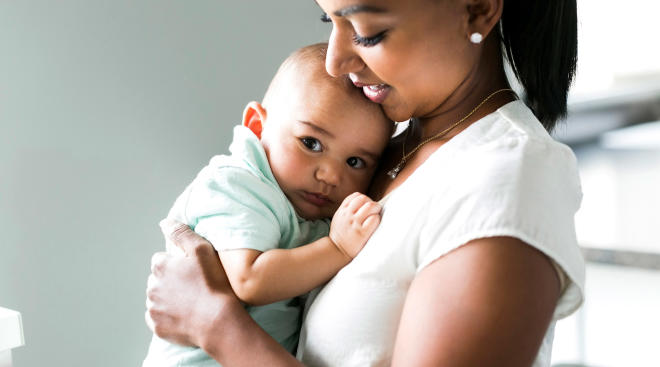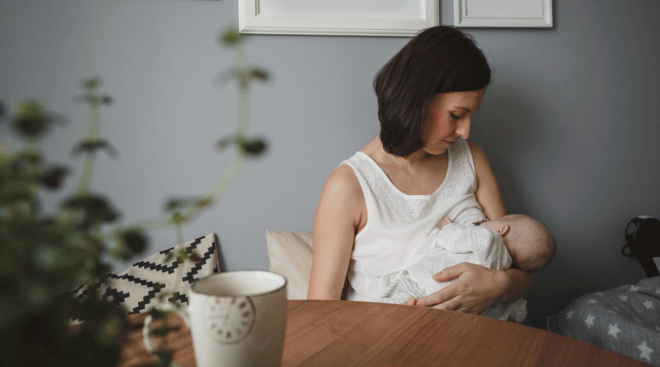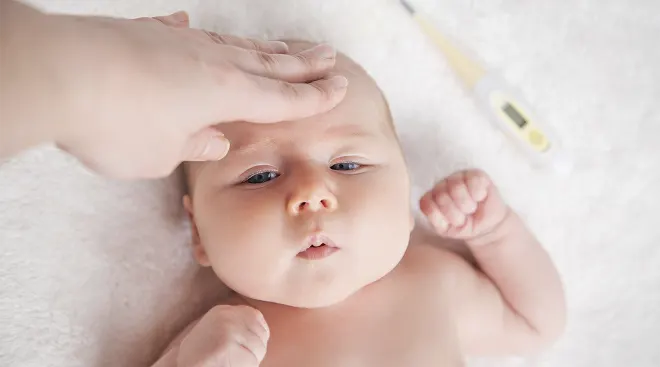What You Need to Know About Whooping Cough
Whooping cough, the scary-sounding bacterial infection once relegated to your grandmother’s time, is making a comeback. Several decades ago, the disease was a big concern for parents: In 1941, there were over 222,000 reported cases, according to the Centers for Disease Control and Prevention. Over the years, whooping cough saw a sharp decline, dropping to just 2,719 cases in 1991—but it’s now back on the rise. Today, up to 50,000 cases are diagnosed each year in the US. What’s worse, the disease can be especially dangerous for babies. Here’s what you need to know about whooping cough in infants and children.
Clinically known as pertussis, whooping cough is a bacterial infection that initially may cause cold-like symptoms. The reason why whooping cough is so dangerous? The infection produces thick, sticky mucus in the throat and airway that can hinder breathing, especially in babies, whose lungs are still developing and whose airways are small. According to the CDC, nearly half of babies diagnosed with whooping cough are hospitalized, one in four of those hospitalized develop pneumonia, and one in 100 die.
The disease is called “whooping cough” because of a characteristic “whoop”-like sound those who are infected make while breathing, but experts say you may not always hear it, especially in babies. “Young infants don’t produce enough energy or pressure difference in their lungs to cause the classic ‘whoop,’” explains Jeffrey Kahn, MD, director of pediatric infectious diseases at Children’s Medical Center in Dallas.
Because whooping cough is a bacterial infection, not viral, it requires medical attention. “While most coughs are caused by viruses that the body can fight off on its own, whooping cough is caused by a bacterial infection called Bordetella pertussis,” says Erin Telepak, DO, a pediatrician at UCHealth Memorial Hospital in Colorado Springs. “This bacterial infection causes a cough that’s often more severe and longer lasting than the typical viral respiratory infection.”
Whooping cough is spread by respiratory droplets in the air, making it highly contagious. If someone with pertussis coughs or sneezes around a baby, she could inhale the bacteria and wind up with whooping cough. Because the disease is so contagious, the CDC recommends that pregnant women get vaccinated for pertussis (with a vaccine called Tdap) in their third trimester. The antibodies from mom can help protect baby when he’s born, including the antibodies that are transmitted to baby through the womb as well as through breast milk after birth. Healthy babies get their own whooping cough vaccination (called DTaP) when they’re 2, 4, 6 and 15 to 18 months old and again between 4 and 6 years old.
It’s also important to consider asking anyone who’s in close contact with baby, including partners, grandparents and caregivers, to be up to date on their Tdap booster. In fact, according to an Australian study, babies were 51 percent less likely to get whooping cough when both parents had been immunized. “The best practice, other than handwashing and keeping your child’s immunizations up to date, is to make sure that adult family members and caregivers around the child get their Tdap booster,” Telepak says. “Newborns and babies under one are at the highest risk of serious illness, and the best thing you can do to protect them is make sure you don’t transmit this infection to the baby.”
That “whoop” sound (which is caused by the sharp inhalation of air) can be a telltale whooping cough symptom. While it’s helpful to know how to recognize the namesake cough (you can listen here for a sample of the classic whooping cough sound), don’t wait to hear it before you contact your pediatrician if you see other worrying signs baby is sick.
Signs of whooping cough typically develop five to 10 days after exposure, although sometimes they can take up to three weeks to develop, Telepak says. When they do, they tend to appear in stages—and whooping cough symptoms in the first few days of the illness can look very different than symptoms that arise after a week.
Early whooping cough symptoms
This stage of the illness may last one to two weeks.
- Low-grade fever
- Runny nose
- Watery eyes
- Sneezing
- Mild coughing
- Apnea or a pause in breathing
- Skin that’s gray or bluish in color
Later whooping cough symptoms
This stage may last anywhere from one to six weeks, although it’s not uncommon for this part of the illness to last up to 10 weeks.
- Violent coughing fits
- Vomiting due to coughing
- A “whoop” when inhaling after a coughing fit
- Exhaustion
- Deep, labored breathing (especially if baby’s skin appears to be sucked in between her ribs as she breathes)
If you suspect your child has whooping cough, bring him to the pediatrician for evaluation. If untreated, pertussis can progress into pneumonia. It can also cause convulsions or encephalopathy (disease of the brain), which is why it’s essential that treatment begin as soon as you notice something wrong.
Even if your child has been vaccinated on schedule, there’s a chance she still may have gotten the illness. DTaP vaccines are 80 to 90 percent effective, according to the CDC, but because babies get five courses of the vaccine in their first year of life, they may not be fully vaccinated until they get their fifth booster, usually around their first birthday.
It’s also possible for kids to get whooping cough after they’re fully vaccinated, but the disease may not be as intense. “Kids who have been vaccinated usually recover much more quickly and have a much milder course of illness,” Telepak says. “If anything, the vaccine could protect your child from life-threatening apnea and hospitalization.” Amy, a mom of three, discovered that her daughter contracted whooping cough from day camp, even though she was fully vaccinated. “She had a bad cough she couldn’t shake for over a month. We got a letter from the County Board of Health that said a case had been confirmed from the day camp and that any child with a cough should seek medical treatment,” she says. “We got antibiotics and were told to keep away from young infants. But I wouldn’t have had any idea.”
Your child’s pediatrician can diagnose pertussis with a sample swab of mucus or a blood test. If your child has whooping cough, she’ll likely be put on antibiotics. Treating whooping cough early—even before the coughing sets in—is key, and may also prevent the spread of the virus to other people in close contact, like parents and siblings. Here are the most common whooping cough treatment options:
- Antibiotics
- Monitoring of breathing
- Avoiding irritants, like dust, fumes or allergens, that could contribute to a coughing fit
- Good hygiene, including handwashing and keeping toys and surfaces clean
- Lots of fluids
- Frequent small meals, which may stop vomiting episodes after coughing
If hospitalization is called for, doctors may give your child extra oxygen, suction out the mucus to keep airways clear and provide fluids through an IV. Home remedies for whooping cough generally include keeping your child comfortable and well rested, and monitoring for any signs of difficulty breathing. In general, doctors don’t recommend over-the-counter cough syrups, which likely won’t help the whooping cough symptoms. A vaporizer may help soothe a cough, but experts say it’s essential to partner with your doctor to manage symptoms to make sure they aren’t getting worse. Because whooping cough is contagious, it’s important to stay out of day care, playgrounds and other kid-centric spaces until the doctor has given you the all clear. “By the time kids become symptomatic, we try to decrease the amount of contagion they spread,” Kahn says.
Whooping cough can last up to 10 weeks, but quickly identifying and treating pertussis can limit how long the disease runs its course. In general, people are contagious for up to three weeks after coughing begins. If you’re at all concerned your child was exposed to whooping cough, speak with your doctor, especially since initial whooping cough symptoms may look mild.
Updated October 2017
Please note: The Bump and the materials and information it contains are not intended to, and do not constitute, medical or other health advice or diagnosis and should not be used as such. You should always consult with a qualified physician or health professional about your specific circumstances.
Navigate forward to interact with the calendar and select a date. Press the question mark key to get the keyboard shortcuts for changing dates.
































